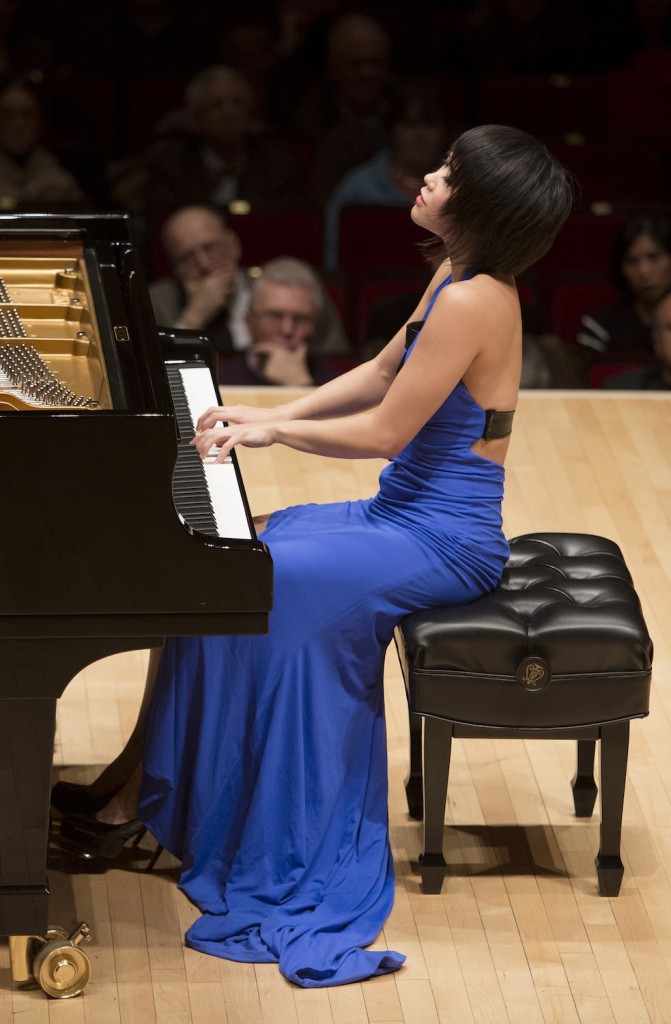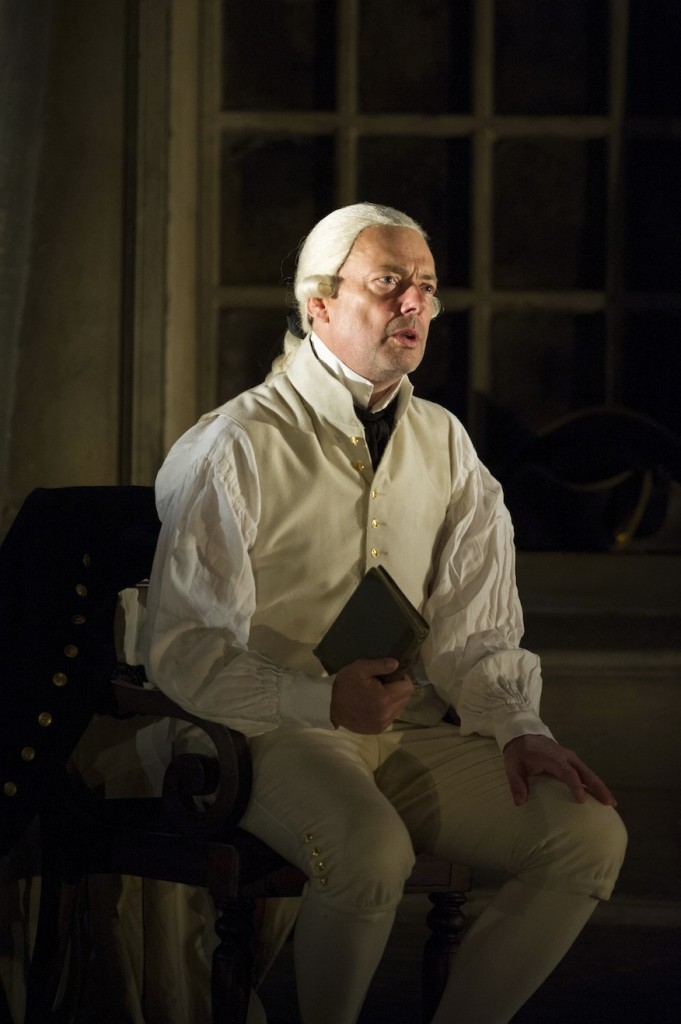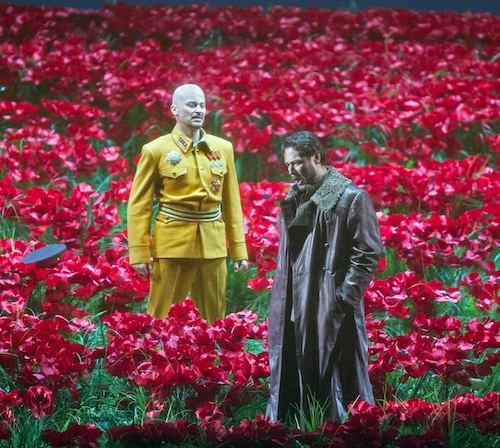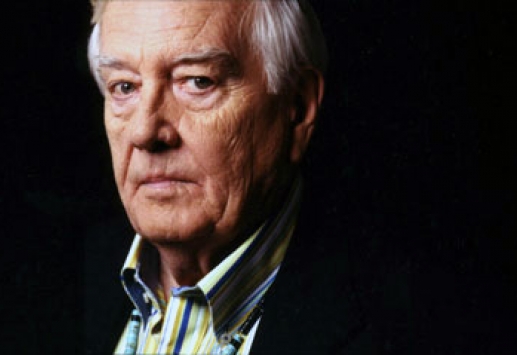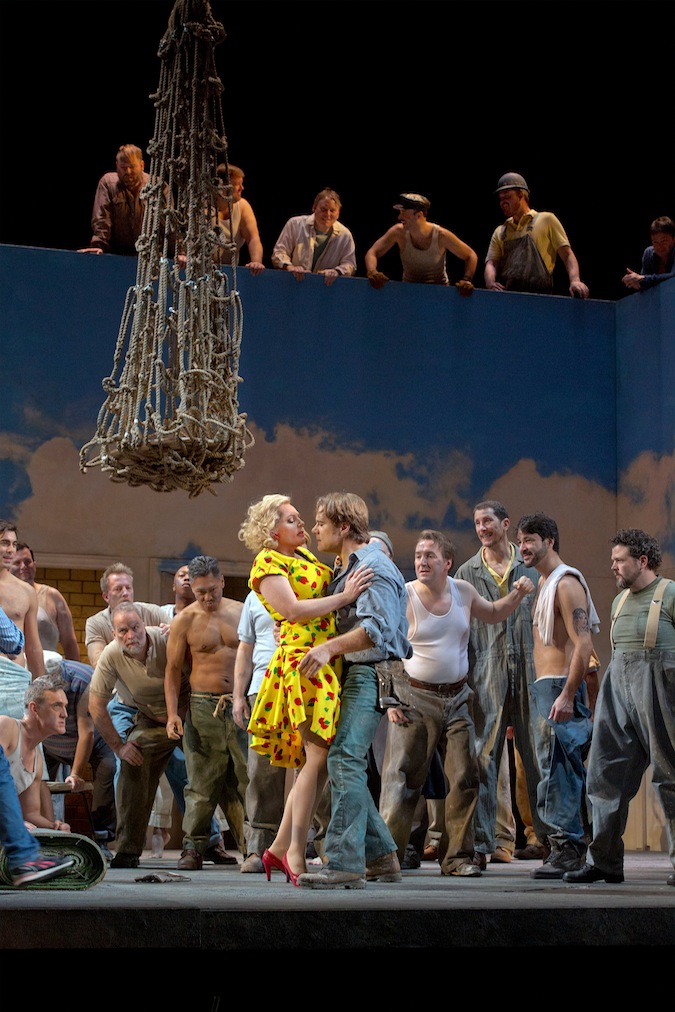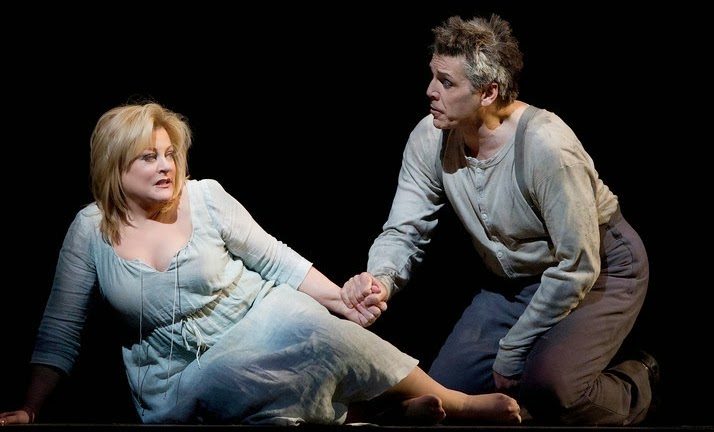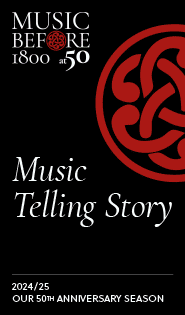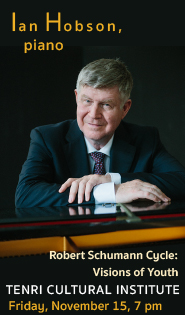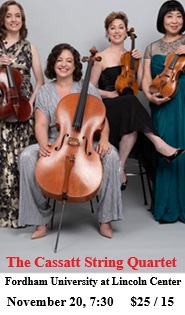Top Ten Performances of 2014
1. Yuja Wang in recital at Carnegie Hall
If this list had been compiled just a week earlier, Goerne and Eschenbach would have occupied this spot; for almost nine months, nothing could touch them. Then along came Yuja Wang–with Daniil Trifonov performing just two nights earlier, it was far from a safe bet that she’d give even the best piano recital at Carnegie Hall that week, let alone one of the best piano recitals New York has heard in recent memory. Her technically flawless and musically inspired Schubert and Scriabin confirmed her as a major artist, silencing anyone who still writes her off as a flash in the pan. (ES)
2. Gilbert Kalish playing Ives’ Concord Sonata
This great piece by Charles Ives is still–still!–shunted into the ghetto of specialists’ music, when it is both central to the Classical tradition and one of the greatest keyboard works in the tradition. Gilbert Kalish played the epic piano sonata at the American Academy with the transparent, unselfconscious assumption of its stature, without any need to argue for a hearing. That simple, firm idea, his tremendous technique and the inherent musicality of his playing made this a performance that will last in the memories of everyone fortunate enough to witness it. The Concord has never spoken in such a purely musical way, and the expressive and intellectual weight it carries are at the exhilarating edge of what is apprehensible. (GG)
3. Matthias Goerne and Christoph Eschenbach: Schubert’s Die Schöne Müllerin
Matthias Goerne might be the closest thing we’ve had to a lieder superstar since Dietrich Fischer-Dieskau. On a cold night in early March, he gave a rapturous, aching interpretation of Schubert’s cycle Die Schöne Müllerin that stunned the Carnegie Hall audience. Christoph Eschenbach is most famous today for his work on the podium (to the chagrin of some), but he remains an elite lieder accompanist–his playing provided Goerne with a living, breathing canvas. (ES)
4. Glyndebourne Opera Festival’s Billy Budd at BAM/Death of Klinghoffer at the Metropolitan Opera
Opera is a medium in which audiences have come to expect the romanticization of death, violence and murder, one reason why contemporary productions of Don Giovanni are frequently so dissatisfying. And where opera is usually sold as a spectacle that will move the audience, that experience rarely goes beyond the most superficial sentimentality.
Except for these two operas, which confront violence, sociopathic sadism, and murder in artistically accomplished and morally stark terms. Unlike thousands of mythic conflagrations, consumptions, and suicides, Britten’s Billy Budd and John Adams’ The Death of Klinghoffer say things that are real and enduringly powerful. (GG)
5. Borodin’s Prince Igor at the Metropolitan Opera
It had been almost one hundred years since the Metropolitan Opera last presented Alexander Borodin’s Prince Igor–and this was one evening worth waiting for. While there wasn’t one vocal performance that stood out in the Met’s production, the new edition of the score prepared by conductor Gianandrea Noseda and director Dmitri Tcherniakov stripped out the extra material interpolated by Glazunov and Rimsky-Korsakov, and in so doing tore the cover off of a lean masterpiece. Without the excess pomp, Borodin’s opera was revealed as a dark, intense piece, made all the more gripping by Noseda’s smoldering conducting and Tcherniakov’s gritty staging. (ES)
6. Robert Ashley’s Crash
Robert Ashley died at the height of his expressive powers, and at the point where a new generation of performers were finding their own ways to perform his operas. Crash, like The Old Man Lives in Concrete before it, defines a late style that combines a tight focus on his subject, absolute command of his materials, and some of the toughest and finest writing from one of the great American prose writers. This traversal at the Whitney Museum of an old man’s experiences, memories, and regrets, was intensely poetic and moving. (GG)
7. Gianandrea Noseda and the Teatro Regio di Torino: Rossini’s William Tell
For a work with one of opera’s most beloved excerpts, Rossini’s William Tell is astonishingly rare in performance. Noseda and the Teatro Regio di Torino made the strongest possible case for the piece in a concert presentation at Carnegie Hall, part of a week-long North American tour. Star turns by John Osborn and Angela Meade did not overshadow the first-rate playing and singing of the Teatro Regio’s orchestra and chorus. (ES)
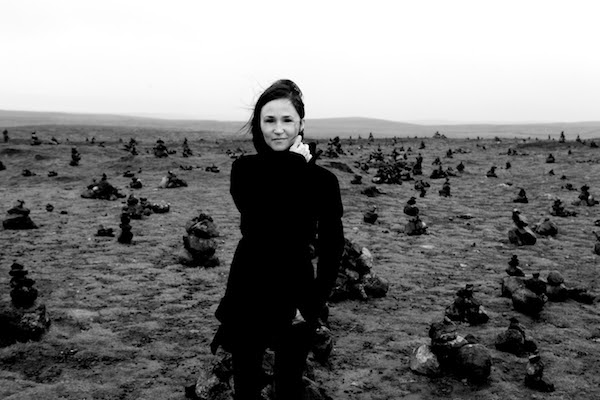
Anna Thorvaldsdottir
8. Anna Thorvaldsdottir and ICE: In The Light of the Air
Haunting is the word to use for music that seems to materialize, reach a solid state, pass, and then return with a feeling of unsettled mystery in memory. Witnessing this performance of Anna Thorvaldsdottir’s In the Light of the Air, a collaborative piece between the composer and the International Contemporary Ensemble (ICE) at the Park Avenue Armory, was like being caught in a slightly exciting, slightly terrifying dream that one relishes and wishes would never end. The memories are haunting. (GG).
9. Lady Macbeth of Mtsensk at the Metropolian Opera
Few revivals have felt so fresh as November’s redux of Shostakovich’s crushing Lady Macbeth of Mtsensk. Eva-Maria Westbroek’s sumptuous singing and James Conlon’s sharp conducting made for an evening that was both musically and dramatically rewarding. Graham Vick’s 1994 production still has teeth, its bewildering sardonicism eliciting howls of cringing laughter before punching you in the gut. (ES)
10. Berg’s Wozzeck at Carnegie Hall and the Metropolitan Opera
A one-of-a-kind experience in a week that went from unlucky to amazing—three different performances of Wozzeck, each topping the last. The Vienna State Opera, with Franz-Welser Möst conducting and Matthias Goerne, was solid enough. Then Goerne, filing in the title role for an ailing Thomas Hampson at pretty much the last minute, was astonishing on stage at the Met. Finally, Hampson, over his bronchitis, stepped onto the stage as Wozzeck and, playing completely against type, gave an incredibly humanizing and expressive performance. He made it a different, new piece, and the MET Orchestra and James Levine played the score with as fine a level of detail and precision as one will ever hear. (GG)
HONORABLE MENTIONS
* 2014 was a great year for Morton Feldman’s music, with three different concerts of his mature, long-duration works: FLUX Quartet played his String Quartet No. 2 at the Park Avenue Armory in April, Either/Or played For Philip Guston at ISSUE Project Room in June, and just this month the New York New Music Ensemble had Why Patterns? on their concert program.
* That same NYNME ensemble concert left a profound impression from Stefan Wolpe’s Quartet for Oboe, Cello, Piano and Percussion. The combination of the rare opportunity to hear Wolpe’s music live, and the superb performance, cemented the impression that the piece is one of the finest compositions of the last 100 years.
* Two years ago, it was unusual to find music from John Luther Adams on a concert program in this city. What a change: there is a growing abundance of his music on the scene, and in May audiences heard his powerful Become Ocean during Carnegie Hall’s final Spring for Music festival. A rare good choice from the Pulitzer committee.
* More Harry Bicket, please! He and the English Concert led a terrific Theodora at Carnegie Hall in February, then followed up with a great Alcina, with the spectacular Joyce DiDonato, in October.
* Listening throughout the year to Claudio Abbado’s final recording, a live Bruckner Symphony No. 9, has reinforced the magnificence of Manfred Honeck’s interpretation with the New York Philharmonic in March, especially under the stress of filling-in for Gustavo Dudamel at the last minute.
* Old Lions spotting: Arvo Pärt at a wonderful concert of his music in June, and Fred Rzewski, shoeless and playing the hell out of the piano, in May at Roulette. (GG)
American Opera Projects kicked off New York’s 2014-15 opera season at BAM with the world premiere of Laura Kaminsky’s As One, a moving and beautifully written chamber opera about a transgender woman. Robert Spano and the Atlanta Symphony Orchestra stood out from the rest of the “Britten 100” bandwagon with a harrowing performance of the War Requiem. Esa-Pekka Salonen led the New York Philharmonic in a searing rendition of Stravinsky’s Firebird. Manfred Honeck led the Philharmonic in a revelatory performance of Dvořák’s “New World” symphony. (ES)
DISAPPOINTMENT OF THE YEAR
That is the only, best word to use when thinking about the Metropolitan Opera canceling the HD broadcast of The Death of Klinghoffer. There was no musical or aesthetic effect—the show went on, was one of the finest musical events of the year, and sold a lot of tickets—but it opened up a window onto the secret world that surrounds classical music but shall not be named; the large, prestigious classical music organizations are, at their core, corporations, with just as much courage and commitment to non-monetary values as one would expect. (GG)
BEST DIVA IN A LEADING ROLE
Many were skeptical that she could pull off the role, but Anna Netrebko brought searing sexuality and intense artistry to her first portrayal of Lady Macbeth at the Met. She dug into Verdi’s music with a diva’s abandon, giving a dynamic performance, one that stands out in what has already been an exemplary operatic career. (ES)
BEST RINGER
2014 was a banner year for artist cancellations, leading to a string of out-of-the-blue, show-stopping performances by substitutes at the Met. At Carnegie Hall, Johannes Moser joined Yannick Nézet-Séguin to fill in for cello superstar Truls Mørk, and gave a terrifying, jaw-dropping performance of Shostakovich’s Cello Concerto No. 1. Moser’s energy was boundless: whenever he wasn’t playing, he bounced around in his chair, as though he might jump up and tackle someone at any moment. (ES)
BASTA! BASTA!
Not so stirring was the Philharmonic’s opening-night gala in September. A year after building his season-opening program around an Osvaldo Golijov cello concerto, Gilbert, with help from Renee Fleming, Joshua Bell, and Josh Groban (no, really), served up eighty minutes of luke-warm Italian fare, soupy arrangements culled from cinema scores. Not even an introduction by Martin Scorsese could keep this evening afloat. (ES)
PUT IT ON THE SHELF
The waning weeks of the 2013-14 season gave us one of the most hyped debuts of the season. Olga Peretyatko did not disappoint, and between her ravishing singing and Lawrence Brownlee’s fireworks, I Puritani closed the Met’s season in style. The production is another story: Sandro Sequi’s 1976 staging isn’t so much falling apart as turning to dust before our eyes. Its drab and tired costumes and painted sets almost make you believe that the production actually dates back to the English Civil War. (ES)
SPECIAL ACHIEVEMENT
Between ABT, Mostly Mozart, and the Lincoln Center Festival, the plaza has its hands full with summer festivals. In June, the New York Philharmonic threw its hat into the ring with the first-ever “NY Phil Biennial,” presenting two weeks of concerts, made up almost entirely of new commissions, at venues across Manhattan, from Avery Fisher, to SubCulture, to MoMA. Alan Gilbert’s tenure has had its ups and downs, but this festival is without a doubt his crowning achievement thus far, and New York’s musical life is richer for it. (ES)
